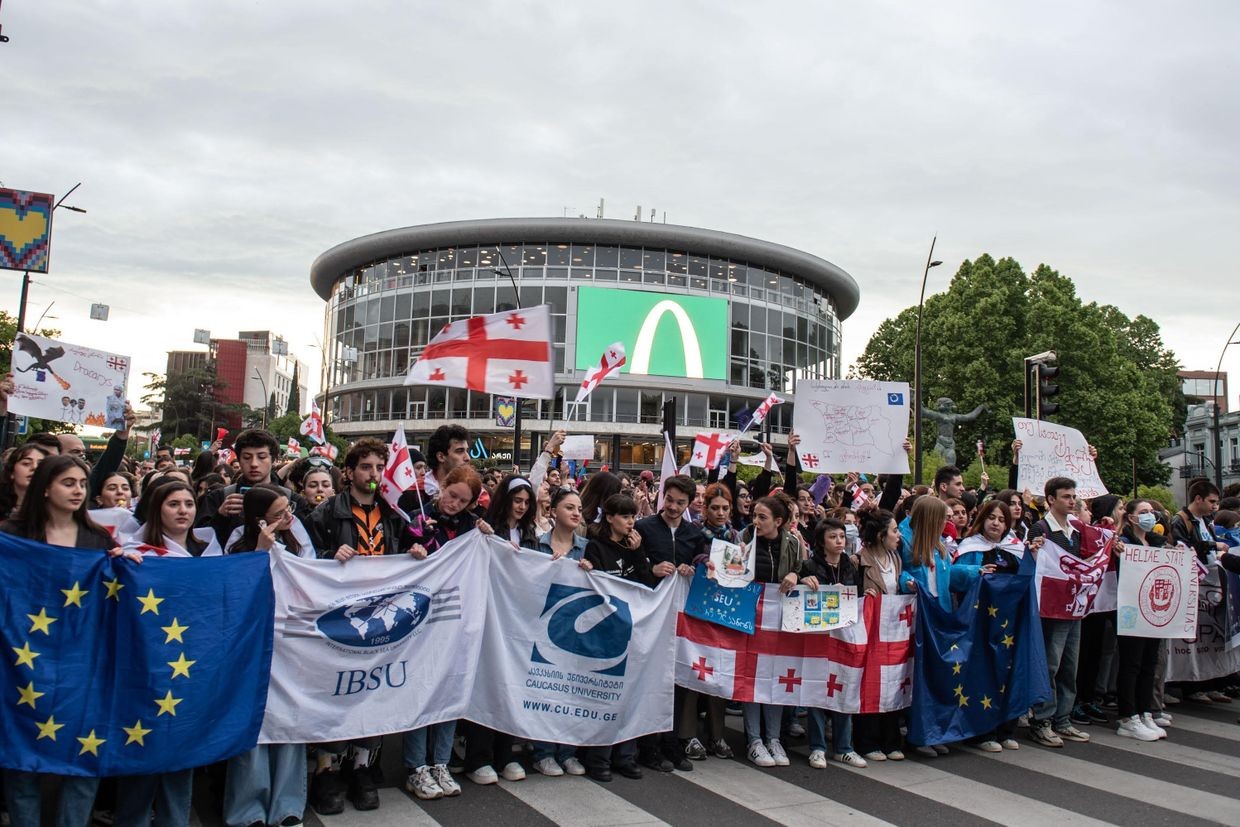
In a government meeting on Monday, Prime Minister Irakli Kobakhidze announced a set of reforms to four-year universities, which will be led by a special government commission. Critics have expressed concerns about possible political motivations for the move.
‘In a four-year perspective, we must qualitatively transform the higher education system, the university system in our country’, Kobakhidze said. According to him, the quality of higher education in the country is not satisfactory, despite the ‘very large resources’ available in this direction.
‘We must fully utilise all resources’, said Kobakhidze, noting that ‘it is entirely possible for a Georgian student to receive the same quality of higher education in Georgia in four years as they would in European countries’.
Kobakhidze himself will lead the government commission. His deputy will be the newly appointed Minister of Education, Alexandre Tsuladze, while the commission's secretary will be Levan Izoria, who was recently appointed as the Prime Minister's advisor on education and science. Prior to this, Izoria served as Georgia’s ambassador to Germany and was the Minister of Defence from 2016 to 2019.
Kobakhidze has not yet specified what he means by the ‘transformation’ of the university system, but in the past, when discussing similar reforms, he criticised opposition-minded professors, linking them to the former government under the Unity- National Movement party that is reviled by Georgian Dream.
‘They lack sufficient qualifications’
The announcement came against the backdrop of the active involvement by the university community in pro-European and anti-government protests.
Since the ruling Georgian Dream party announced the suspension of its EU membership bid in November, students have organised street protests, as well as related actions on campuses. They were also actively involved in protests against the controversial foreign agents law in 2023 and 2024. Some professors have expressed dissent in various forms, including open letters.
One of the protest centres is Tbilisi State University (TSU), whose administration critics accuse of being close to the government. However, some academic staff have repeatedly shared protest sentiments.
In May 2024, during protests against the foreign agents law, Kobakhidze said on the Public Broadcaster that a large number of TSU professors were ‘selected based on political affiliation and lack sufficient qualifications’. He also mentioned the need for a ‘qualitative transformation’ of the system and promised that one of the main priorities after the 2024 elections would be education reform.
At that time, Kobakhidze expressed regret that Georgian Dream had not done enough in this direction, which allowed the previous government representatives to ‘take control of the system’.
When asked what the government planned to do about this issue, Kobakhidze said, ‘We will offer a reform based on qualitative transformation [...] As a result, in four years, we will not have a different political landscape, but we will have a qualitatively different infrastructure where students will have ten times better opportunities to realise their interests’.
Kobakhidze also criticised some professors at TSU a year before, saying in 2023 that there were professors in the university who were appointed on political grounds by the UNM government. Kobakhidze also claimed that during the time of UNM, he was dismissed from the university after criticising the constitutional changes at the time.
Against the backdrop of Kobakhidze's rhetoric, some critics have suggested that ‘reform’ does not aim to improve the quality of education.
‘For me, this was perceived as a continuation of a political process’, Lika Ghlonti, the EU4Dialogue project coordinator, told BMG TV, recalling Kobakhidze’s comment last year that education reform would face resistance, similar to what occurred with the foreign agents law.
According to education expert Simon Janashia, who was also interviewed by the channel, such a statement cannot be perceived as a step toward improving the quality of education from someone who ‘detains students with the hands of the police’, referring to Kobakhidze.
In the spring of 2024, when students and lecturers from more than 30 universities declared a strike against the foreign agents law, a statement was issued by the rectors of 38 universities opposing the legislation. Some major university rectors did not sign the letter, including Ilia State University (ISU), which is considered a hub for liberal thought and government critique.
In October, Georgia’s Education Ministry withheld the full accreditation from ISU, granting it only conditional authorisation ‘with the condition of monitoring after a year’. Critics attributed the decision to the university staff and students’ opposition to the foreign agent law.
As a lecturer at the TSU’s Faculty of Law, Kobakhidze himself became a direct target of protests, with students organising numerous protests against him during the protests against the foreign agents law.
In addition to criticism directed at professors, representatives of Georgian Dream have also expressed irritation towards some young people participating in the protests. After one of the protests against him at TSU, Kobakhidze stated that several young people participated in the protest, claiming that they are ‘disorientated’and they should get on the ‘right track’, calling on men to ‘take wives’ and for women to ‘get married and reproduce’.











